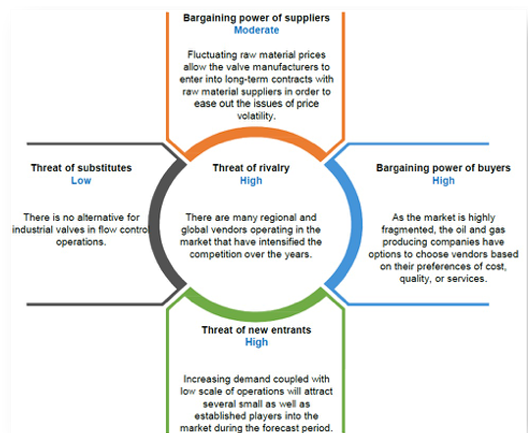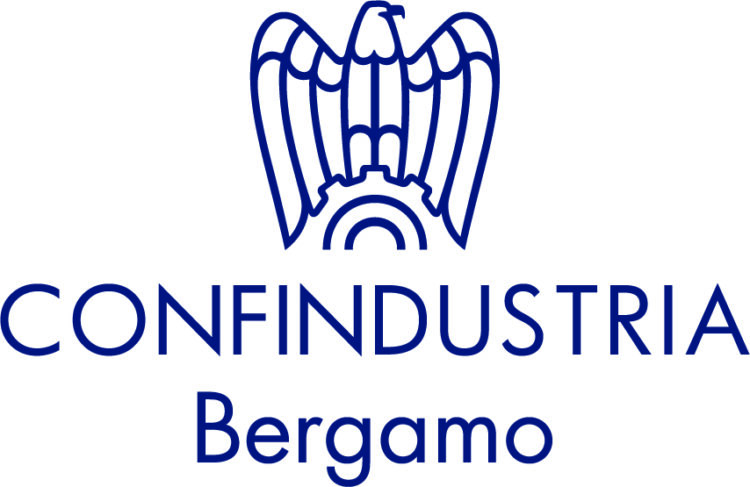IVS INDUSTRIAL VALVE SUMMIT
MAY 19th > 21st 2026
Conference Programme 2019
- Home
- /
- Conference Programme 2019
VALVEcampus
VALVEcampus association supports the spreading of technical knowledge for Industrial Valves & Components Stakeholders.
It was established in 2014 to support IVS in cooperation with Confindustria Bergamo and Promoberg.
VALVEcampus is ready for the 4′ edition of IVS!
IVS 2021 has renewed its partnership with VALVE Campus to promote the diffusion of technical knowledge among the stakeholders of industrial valves and components.
As part of IVS 2021, VALVE Campus will present new training formats and will share industry expertise thanks to its innovative platform.
2019 Edition
1st Technical Panel Session
Colleoni Room, 10:30 – 13:00
a) “Qualification of Low‐E polymer spring‐energised seals in compliance with class AH fugitive emission standards”
Presenter: Filip Rousseau (Saint Gobain Performance Plastics)
Authors: Simone Caglio, Herman Dubois, Bart Engels, Jan Kustermans, Filip Rousseau, Christophe Valdenaire (Saint Gobain Performance Plastics, B)
b) Advanced metal sealing solution for Triple‐Offset butterfly valves
Presenter: Laurent Guimet (Technetics Group)
Authors: Jean‐Jacques Darque, Laurent Guimet (Technetics Group, F)
c) Fugitive emissions detection gearbox. A new product to contain and detect F.E. from valves
Presenter: Davide Del Mastro (Rotork)
Authors: Davide Del Mastro (Rotork, I), Tom Pawinski (Rotork, UK)
d) Is SMART LDAR correctly applied today in Europe? Take a look at the differences between CWP and AWP LDAR
Presenter and Author: Francesco Apuzzo (Carrara Spa, I)
e) Optimization and compounding effect of element technology for Low‐E packing
Presenter and Author: Kohei Arakawa (Nippon Pillar Packing, J)
f) Valves life‐cycle and preventive maintenance
Presenter: Enrico Viscardi (Petrolvalves)
Authors: Stefano Crespi, Enrico Viscardi (Petrolvalves, I)
Workshop on valve standard developments
Caravaggio Room, 10:30 – 13:00
a) A new End‐Users’ Recommended Practice on Actuated Valves (AV) assemblies and actuator sizing and selection tool (ASST)
Presenters and Authors: Henk Hinssen (IHAndl Engineering, NL), Kees Meliefste (Dow Chemical, NL)
b) IOGP JIP33 End Users’ Standardization Initiative based on API 6D (ball) and API 600/603 (gate) valves
Presenters and Authors: Loic Deneuville (Total, F), Tony Smart (Shell, NL)
This workshop will cover two distinct subjects, dealing respectively on:
- a new proposed recommended practice for end users to properly select their actuated valve assemblies, based on the standardization activity performed by WIB (International Process Automation Users’ Association).
- task assigned by the World Economic Forum (WEC) to IOGP (International Oil and Gas Producers), within the Joint Initiative Program) JIP33, to work on the O&G procurement standardization of equipment and packages, basing specifically – in the starting phases – on API 6D (ball valves) and API 600/603 (gate valves).
On Wednesday May 22nd (from 10:30 to 13:00) a dedicated Workshop on Valve Standards will be held, split in two parts, to cover two new valve standards, currently under development.
The first part will deal with a proposed Recommended Practice for End Users, based on the standardization activity on actuated valve assemblies, originally developed within WIB – Process Automation Users’ Association (www.wib.nl), based in The Hague (Netherlands).
Formed initially by a group of 6 founding members, has now grown to an international participation of more than 40 Member Companies. Over the last 20 years, WIB’s activities have evolved to include extensive technical knowledge sharing about technology opportunities and applications, as well as discussion party with vendors and authorities on implementation and interpretation of new rules and legislation, on e.g. metering, functional safety, emission monitoring and plant Security aspects.
The title of this session is “A new End Users’ Recommended Practice on Actuated Valve (AV) assemblies and actuator sizing & selection tool (ASST)” and will be coordinated by Mr. Henk Hinssen (iHandl Engineering, NL) and Mr. Kees Meliefste (Dow Chemical, NL).
The second part of the workshop will cover a series of activities performed under the Joint Initiative Program JIP33, within the standardization work of IOGP (International Oil and Gas Producers).
The International Association of Oil & Gas Producers (IOGP) is the voice of the global upstream industry.
Oil and gas continue to provide a significant proportion of the world’s energy to meet growing demands for heat, light and transport.
IOGP Members produce 40% of the world’s oil and gas and they operate in all producing regions: the Americas, Africa, Europe, the Middle East, the Caspian, Asia and Australia as reported in the official website https://www.iogp.org/about-us/.
The World Economic Forum (WEC) charged IOGP to work and develop, in the O&G segment, specific procurement standards for equipment and packages, basing specifically – in the starting phases – on API 6D (ball valves) and API 600/603 (gate valves).
The first work, IOGP API 6D Supplement S-562 has been published in January 2019 and adopted by all participating companies. The second document, IOGP API 600/603 Supplement S-611, is almost complete and it will be released shortly.
The title of this session is “IOGP JIP33 End-Users’ Standardization Initiative based on API 6D ball and API 600/603 gate valves” and will be coordinated by Mr. Loic Deneuville (Total E&P, F) and Mr. Tony Smart (Shell Global Solutions, NL).
This workshop will bring to the audience important and interesting aspects on standardization developments and we believe it will be very beneficial to all attendees.
An actionable framework for collaboration in temporal supply chain contexts
Colleoni Room, 14:15 – 15:00
University Thesis Presentation by Matteo Bravi (Milan Polytechnic)
Presenters: Matteo Bravi and Guido Micheli (Milan Polytechnic, I)
Authors: Matteo Bravi and Enrico Cagno (Milan Polytechnic, I), Yasmine Sabri (Aston University, UK)
Successful collaborative initiatives between supply chains’ members can lead to sustained differentiated performance. However, inter-firm collaboration often fails due to misalignment of incentives and strategies. The Relational View theoretical perspective has been employed by prior researchers to tackle this issue, however, usually in contexts where supply chains are well-established networks overlooking a long-term time horizon. For this reason, it becomes interesting to employ the Relational View investigating the co-generation of competitive advantages through supply chain collaboration in temporal contexts.
On Wednesday May 22nd (from 14:30 to 17:00), the afternoon will be fully dedicated to the Supply Management Themes.
The first part will deal by the Eng. Matteo Bravi, supervised by the Prof. Eng. Guido Micheli, Polithecnic of Milano, who will introduce the results of his study about the logistic management of the supply chains. The title of this topic “An actionable Framework for collaboration in temporal supply chain contexts” shows the successful collaborative initiatives between supply chains’ members can lead to sustained differentiated performance. However, inter-firm collaboration often fails due to misalignment of incentives and strategies.
The Relational View theoretical perspective has been employed by prior researchers to tackle this issue, however, usually in contexts where supply chains are well-established networks overlooking a long-term time horizon. For this reason, it becomes interesting to employ the Relational View investigating the co-generation of competitive advantages through supply chain collaboration in temporal contexts. This work investigates supply chain relationships, strategies and performance through a multiple case study in the Italian industrial projects-based supply chain supplying products for O&G sector projects. The sample of firms analyzed is composed by high-tier small-medium Italian suppliers, and the study mainly focuses on horizontal and lateral collaborations between these manufacturers. The O&G sector refers to a market with increasingly large multinational groups and many emerging low-price foreign competitors; where profit margins are lower and lower, and many new challenges as the ‘local content’ requirements are arising. Given this scenario, supply chain collaboration could be a beneficial supply chain strategy to enhance Italian SMEs’ competitiveness. This study investigates the “mechanisms” that can enable supply chain collaboration, such as investments in partnership-exclusive assets, combination of resources and capabilities, knowledge sharing or the implementation of suitable governance mechanisms. As well as the “barriers” that may obstruct supply chain collaboration, such as the problem of asset interconnectedness, risk of resource indivisibility, partner scarcity or the restrictions imposed by several institutional environments. Analyzing the sample of firms, this study considers real cases to identify most widespread “mechanisms” and then learn most effective or desired “mechanisms” to implement a sustainable collaboration. As well as the most and the least serious “barriers” obstructing it. This, to propose actions or strategies for firms, in order to implement most important “mechanisms”, overcoming limiting barrier and gaining a shared competitive advantage. The final aim of this multiple case study is to evaluate the feasibility of implementing supply chain collaboration in temporal contexts, reflecting on the appropriateness of relational view in such contexts. As well as providing to analyzed firms an actionable framework for supply chain collaboration in temporal supply contexts.
IVS‐VALVEcampus Survey Presentation and Round Table
Caravaggio Room, 15:00 – 17:00
a) SAI Report “What are the International Oil and Gas Valve Users looking for from their vendors”
Author and Presenter: Bruce Deckman (SAI Industrial LLC, USA)
b) Round Table
Moderator: Sissi Bellomo (Il Sole – 24 Ore Financial Newspaper, I)
Panelists:
– Meshari Al-Otaibi (Aramco Overseas Co. BV, I)
– Maurizio Brancaleoni (VALVEcampus, I)
– Bruce Deckman (SAI Industrial LLC, USA)
– Giovanni Del Serrone (Technip FMC, I)
– Brian Lade (Syncrude Canada, CN)
– Luciano Sanguineti (ATV, I)
– Domenico Sartiano (Maire Tecnimont, I)
Before the Round Table, Bruce Deckman (SAI Industrial LLC) will present the survey “What are O&G Valves’ End Users looking for from their Vendors?” to highlight the perception of the End Users about the quality of the products, the organizational performance of the industrial valve manufacturers and what will be the main requirements that they will have to fulfil in the future? The presentation of this international survey, commissioned by Valvecampus in order to gain Customers’ perceptions of the valves industry, identifies critical success factors for valve manufacturers selling to O&G customers and gaining insights into the future outlook for the valves business.
The round table – conducted by Mrs. Sissi Bellomo (Journalist of the Italian financial newspaper “Il SOle-24 Ore” – will host leading representatives of some O&G Stakeholders (representing End Users, EPCs and Manufacturers) and will answer to the original question: “What are O&G Valves’ End Users looking for from their vendors?”
The round table – conducted by Mrs. Sissi Bellomo (Journalist of the Italian financial newspaper “Il SOle-24 Ore” – will host leading representatives of some O&G Stakeholders (representing End Users, EPCs and Manufacturers) and will answer to the original question: “What are O&G Valves’ End Users looking for from their vendors?”
The guests attending to the Round Table are:
- Meshari Al-Otaibi (Aramco Overseas Co. BV)
- Maurizio Brancaleoni (Valvecampus)
- Bruce Deckman (SAI)
- Giovanni Del Serrone (Technip FMC)
- Brian Lade (Syncrude Canada)
- Terje Moe (Equinor)
- Luciano Sanguineti (ATV)
- Domenico Sartiano (Maire Tecnimont)
Before the Round Table, Bruce Deckman (SAI Industrial LLC) will present the first International VALVEcampus Survey, conducted to highlight the perception of the End Users about the quality of the products, the organizational performance of the industrial valve manufacturers and what will be the main requirements that they will have to fulfil in the future.
The presentation of this International Survey, commissioned by VALVEcampus in order to gain Customers’ perceptions of the Valve Industry, identifies critical success factors for valve manufacturers, selling to O&G customers, allowing all Delegates to gain insights into the future outlook for the valves business.
Target Respondents of the survey were Technical Engineers, Project Managers and Sourcing Procurement Managers – working for O&G and EPC companies – who specify and/or buy and/or use daily industrial valves, produced by international Valve manufacturers.
These respondents, professionals from all continents belonging to 107 different Companies, have answered to the thirteen questions included in the questionnaire, offering an important and up-to-date overview about the expected critical success factors.
Sissi Bellomo will give an overview on the general state of the industry and investments in the Oil & Gas fields and, introducing the other guests, will lead the discussion which will originate from the Valvecampus Survey Report.

2nd Technical Panel Session
Colleoni Room, 10:30 – 13:00
a) “Correct valve selection for ESD”
Presenter and Author: Ville Kähkönen (Metso Flow Control, SF)
b) “Changing & New Codes & Standards”
Presenter and Author: Paul Heald (Bonney Forge, USA)
c) “Significant improvements in valve maintenance by the adoption of a closed loop performance monitoring system”
Presenter: Claudio Scali (University of Pisa, I)
Authors: Riccardo Bacci di Capaci and Claudio Scali (University of Pisa, I) and Evaldo Bartaloni (CLUI AS, I)
d) Corrosion allowance in valves: common practice and new cost‐effective approach to prevent failures
Presenter and Author: Marco Sparisci (DAFRAM, I)
e) Valve Deficiency Study: End User Experience
Presenter and Author: Meshari Al-Otaibi (Saudi Aramco Overseas, KSA)
WORKSHOP – ADDITIVE MANUFACTURING and 3D Metal printing for Industrial Valves
Caravaggio Room, 10:30 – 13:00
a) Introduction and Presentation: “Current Developments on API standard for qualification of additively manufactured metallic materials for use in the Petroleum and Natural Gas Industries”
Carlo De Bernardi (ConocoPhillips, USA)
b) How will AM influence valve design and manufacturing?
Presenter: Per Wennersten (Ramén Valves AB, S)
Authors: Bo Joahnsson, Per Wennersten , Rainer Windsein (Ramén Valves AB, S)
c) Additive Manufacturing: Re‐shaping the Oil & Gas Industry
Presenters and Authors: Fabrizio Delledonne (IMI Orton, I), Marco Marcuccio (CMF Marelli, I),
Marco Scognamiglio (XSIGHT – Saipem, I)
d) Additive Manufacturing in Oil&Gs Industries
Presenter and Author: Valeria Tirelli (AIDRO Hydraulics & 3D Printing, I)
e) Additive Manufacturing Technology for Severe Service valve trim design
Presenter and Author: Michele Ferrante (VSI Controls, I)
f) Design and qualification of 3D printed parts: new challenges for control valves
Presenter: Sergio Lorenzi (Bergamo University, I)
Authors: Sara Biamino (Turin Polytechnic, I), Fabio Brevi (OMB Valves, I), Sergio Lorenzi (Bergamo University, I)
The state-of-the-art and the new technical regulations of this important manufacturing technology rapidly emerging for production of parts and components of Industrial Valves. An exploration of the materials, the processes today available with business consideration about a market that is growing day by day.
Workshop on Fugitive Emissions Standards Update
Caravaggio Room, 14:00 – 16:00
a) “Fugitive Emissions Standards Update: Change in the F.E. Test Protocols API 622 (API 624‐API 641), ISO 15848 and VDI 2440”
Presenter: Manfred Schaaf (AMTECH Messtechnischer Services GmbH, D)
Authors: Manfred Schaaf and Simon Weiler (AMTECH Messtechnischer Services GmbH, D)
b) “High Performance Elastomers: Answering the Big Questions”
Presenter: Matthew Mitchell (ESA E&PSD, UK)
Authors: Andrew Douglas, David Edwin‐Scott, Matthew Mitchell (ESA – European Sealing Association, UK)
The commitment for reducing the fugitive emissions from equipment leak is becoming more and more global and involves today all actors, Autorithies, Oil& Gas Producers and Component Manufactures, in common effort. The main Fugitive Emission Standards for Valves and Packings has been recently updated in order give more effectiveness for reducing the VOC emissions in Plant Operations.
On Thursday May 23rd (from 14:00 to 16:00), the afternoon work shop will be conducted by the chairman David Edwin-Scott (ESA) with the participation of Manfred Shaaf (AMTEC) and Emmanuel Sauger (CETIM), introducing the last Fugitive Emission Standards Update “Change in the Fugitive Emission Test Protocols API 622 (API 624-API 641), ISO 15848 and VDI 2440”.
“Fugitive emissions from equipment leaks are unintentional losses and may arise due to normal wear and tear, improper or incomplete assembly of components, inadequate material specification, manufacturing defects, damage during installation or use, corrosion, fouling and environmental effects and components also tend to have greater average emissions when subjected to frequent thermal cycling, vibrations or cryogenic service” as defined in the literature of “Proceedings of the 2nd annual Gas Processing Symposius, Doha 2010”.
The valves are the main emission’s contributors of Greenhouse Gas (GHG) from equipment leaks and this is the reason because in the last 30 years strong efforts have been aimed to them in order to implement an effective GHG emission reduction strategy.
The commitment for reducing the fugitive emissions from equipment leak is becoming more and more global and involves today all actors, Authorities, Oil& Gas Producers and Component Manufactures, in common effort. The main Fugitive Emission Standards for Valves and Packings has been recently updated in order give more effectiveness for reducing the VOC emissions in Plant Operations.
The workshop will highlight the technical modifications about execution of the tests and concerning the new acceptance criteria for the Low Emission Stem Packings.


